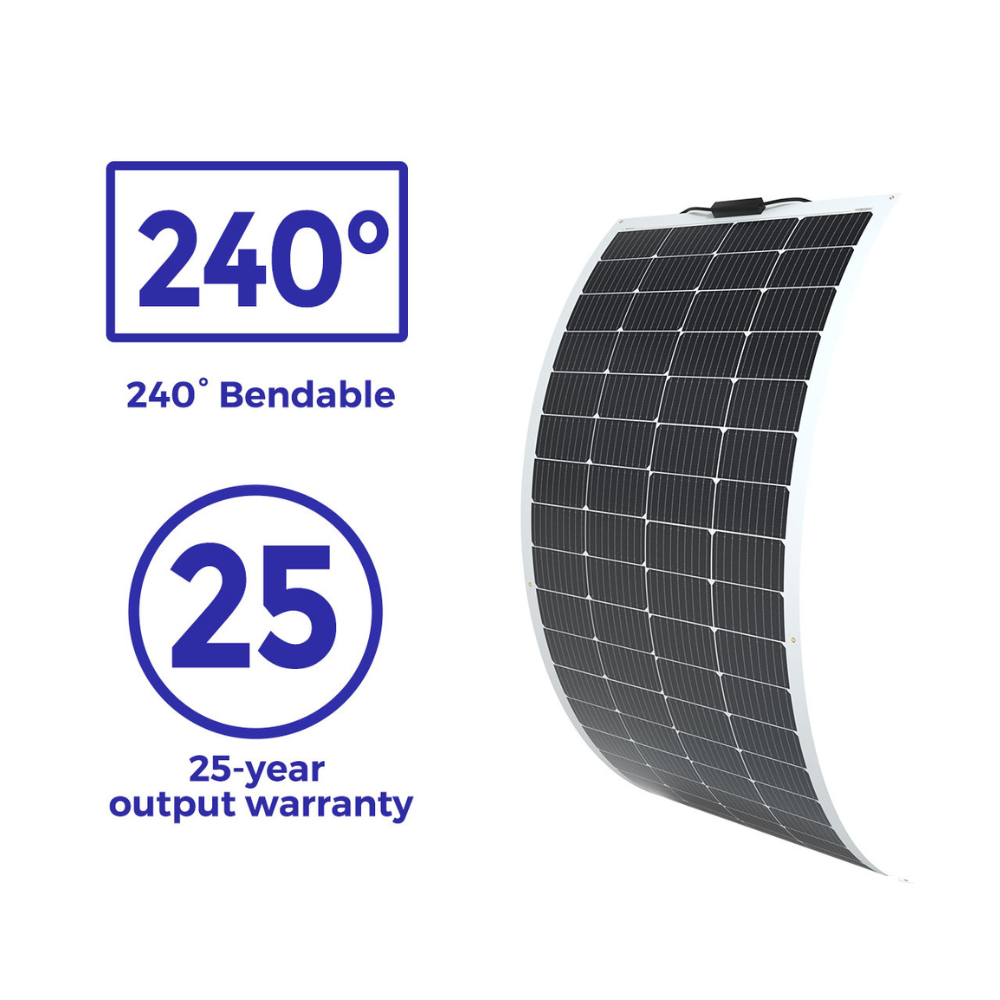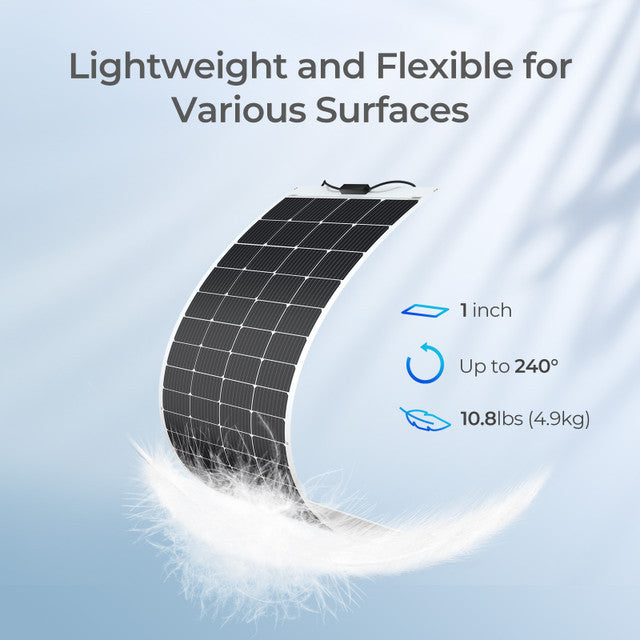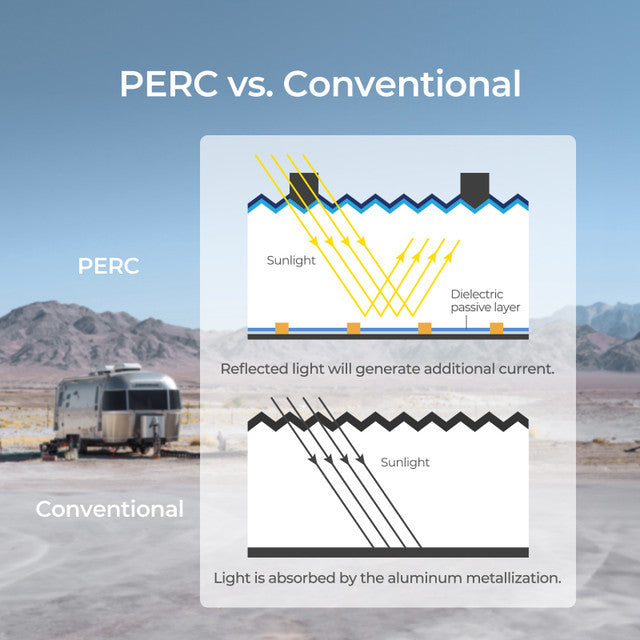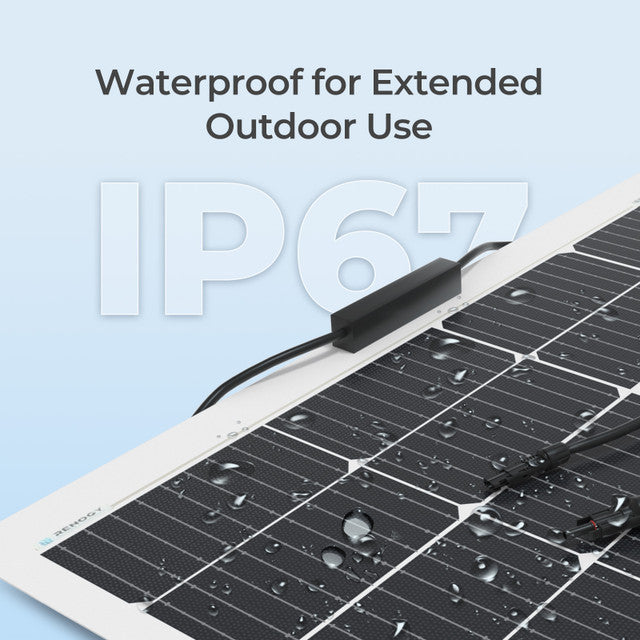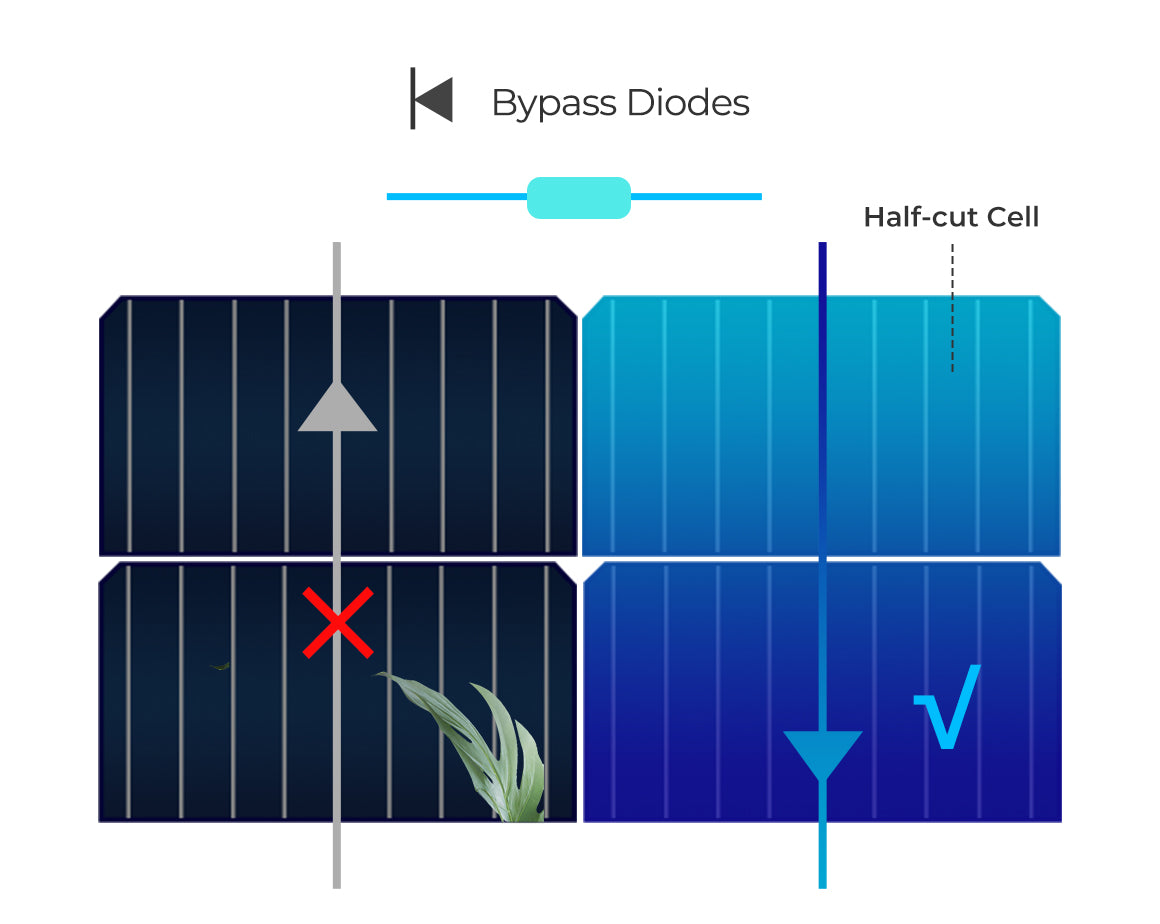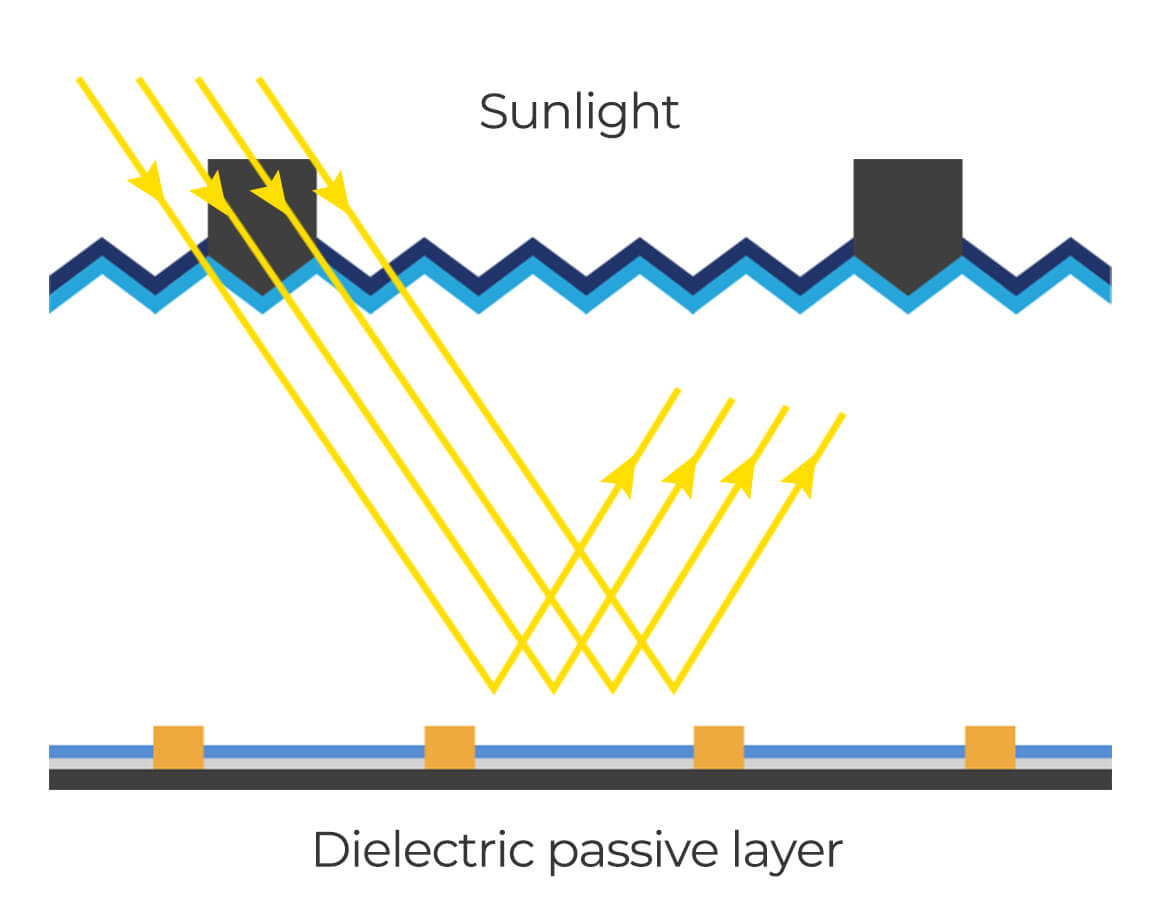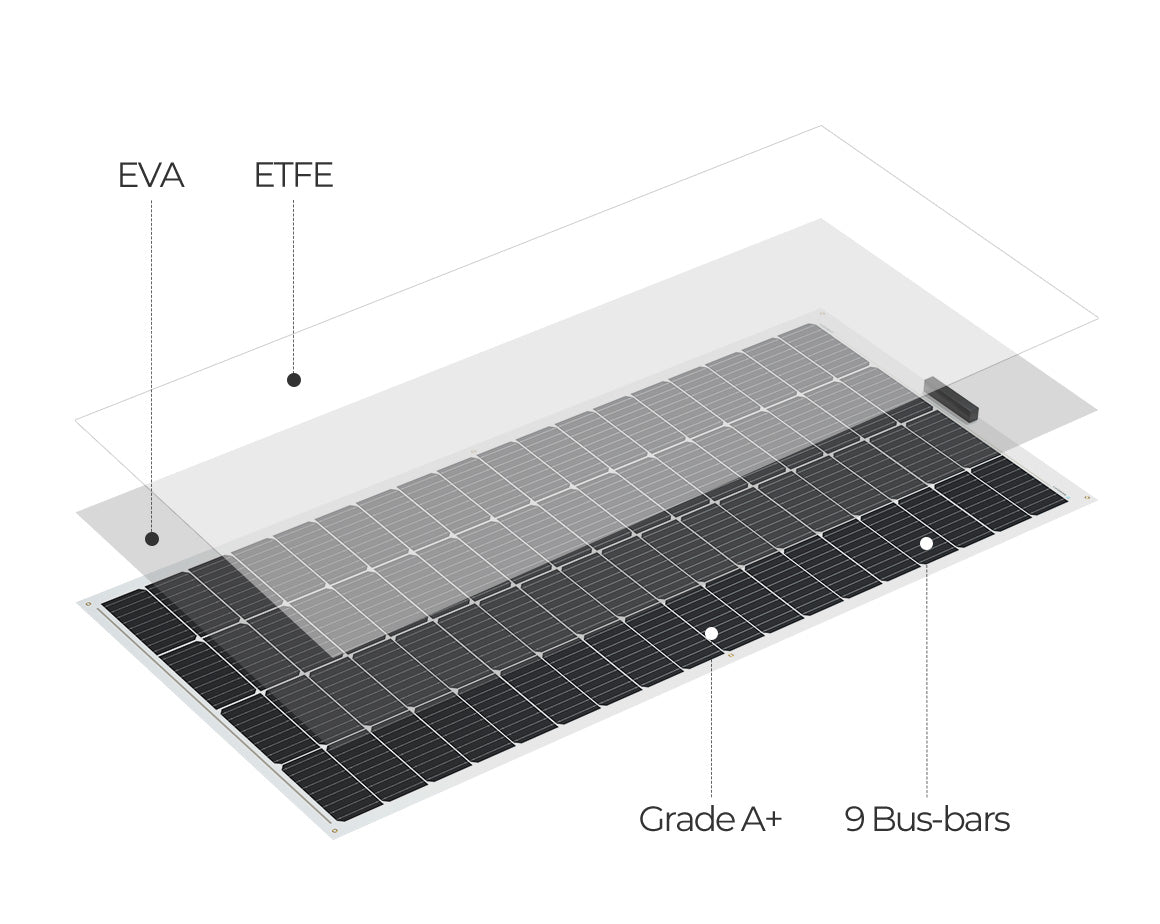200 Watts – 12 Volts Monocrystalline Flexible Solar Panel
- -Ce panneau solaire supporte environ 1000 wattheures d’électricité par jour (avec 5 à 6 heures d’ensoleillement direct)
- -Renogy panneau solaire 200 W est flexible jusqu’à 240°, vous n'avez pas soucis du site d'installation. Donc, il vous pertmet de réaliser les utilisations polyvalentes, surtout si vous voulez DIY.
- -Notre panneau solaire flexible est testé plus de 1,000 fois sur la performance et le système ce qui permet de maintenir plus de 80 % d’efficacité de production pendant 25 ans.
- -Ce panneau solaire est conçu avec la technologie solaire avancée. Par exemple, ses diodes de dérivation et technologie demi-cellules améliorent la résistance aux points chauds et à l’ombrage accidentel.
- Le 200W panneau solaire flexible dispose d'un surface en ETFE et des cellules à 9 bus-bars pour une meilleure transmission de la lumière et une efficacité de conversion accrue.
200 Watts – 12 Volts Monocrystalline Flexible Solar Panel - 1 Pack is backordered and will ship as soon as it is back in stock.
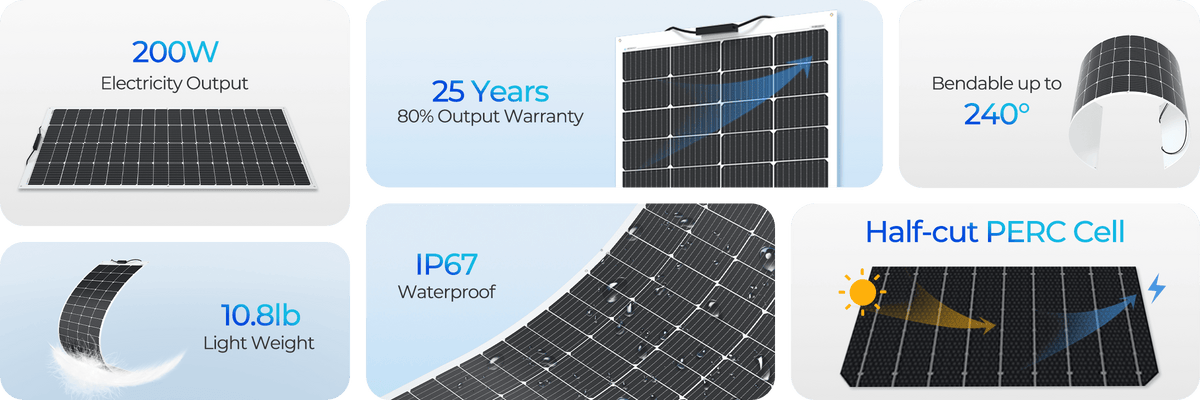
Core 200Ah vs other LiFePO4 batteries
Unparalleled performance to meet your most demanding energy needs.
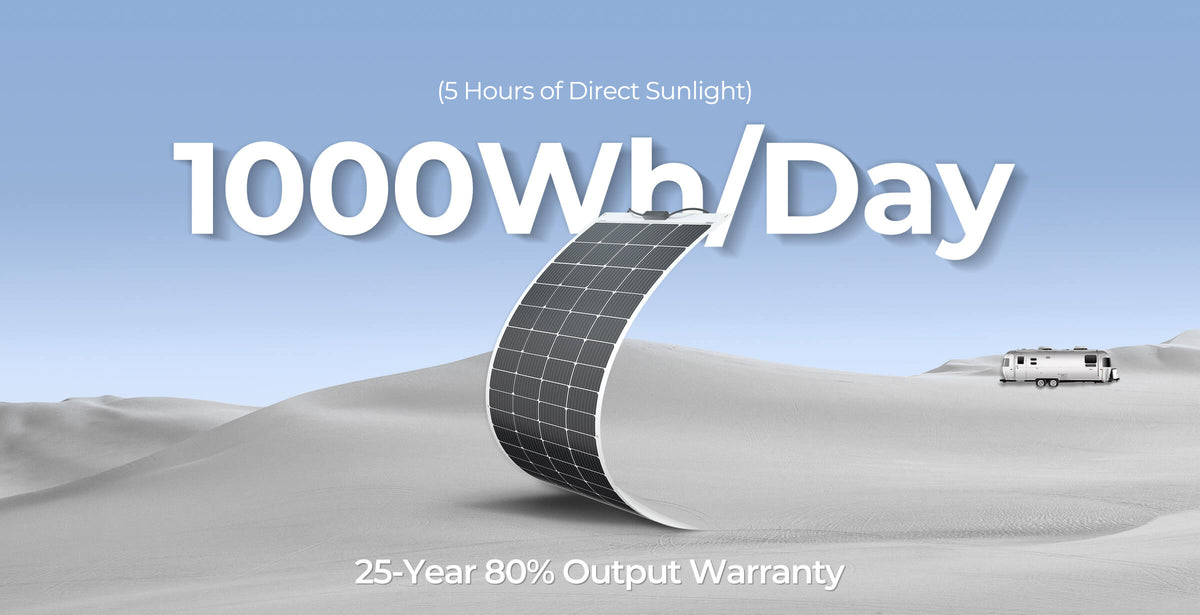
Flexibility for different surfaces
The Renogy 200W flexible panel can bend up to 240° and weighs 50% less than rigid panels, making it easier to transport and install. An additional layer of composite material is integrated to enhance durability and flexibility.
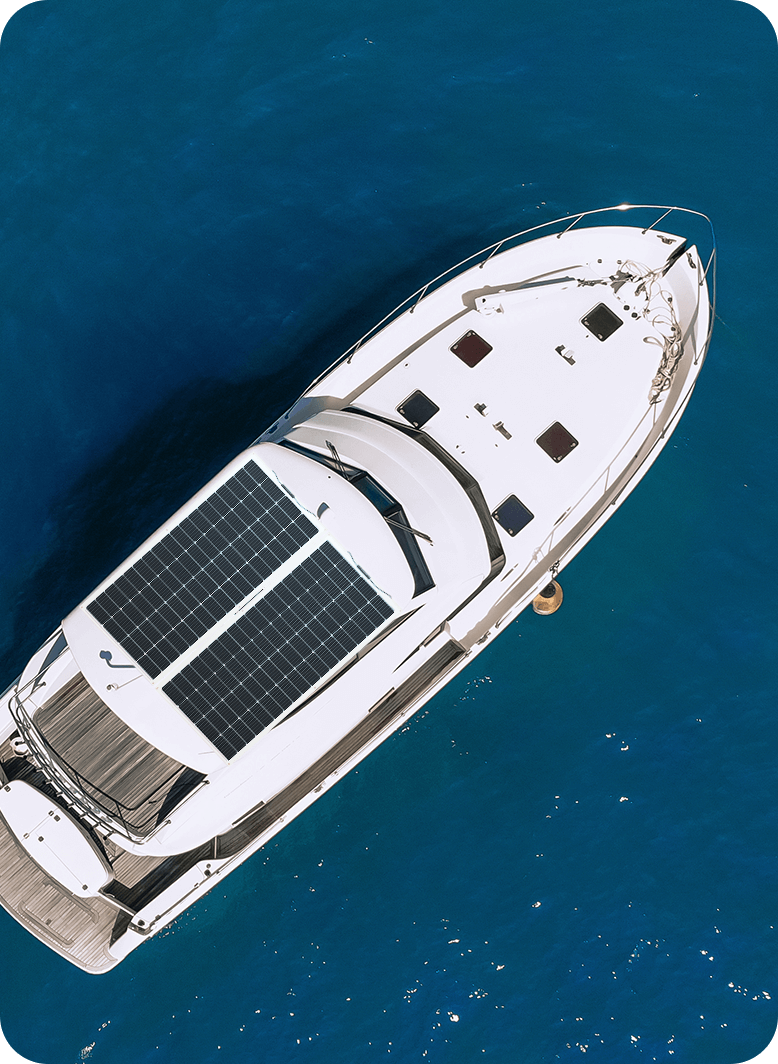
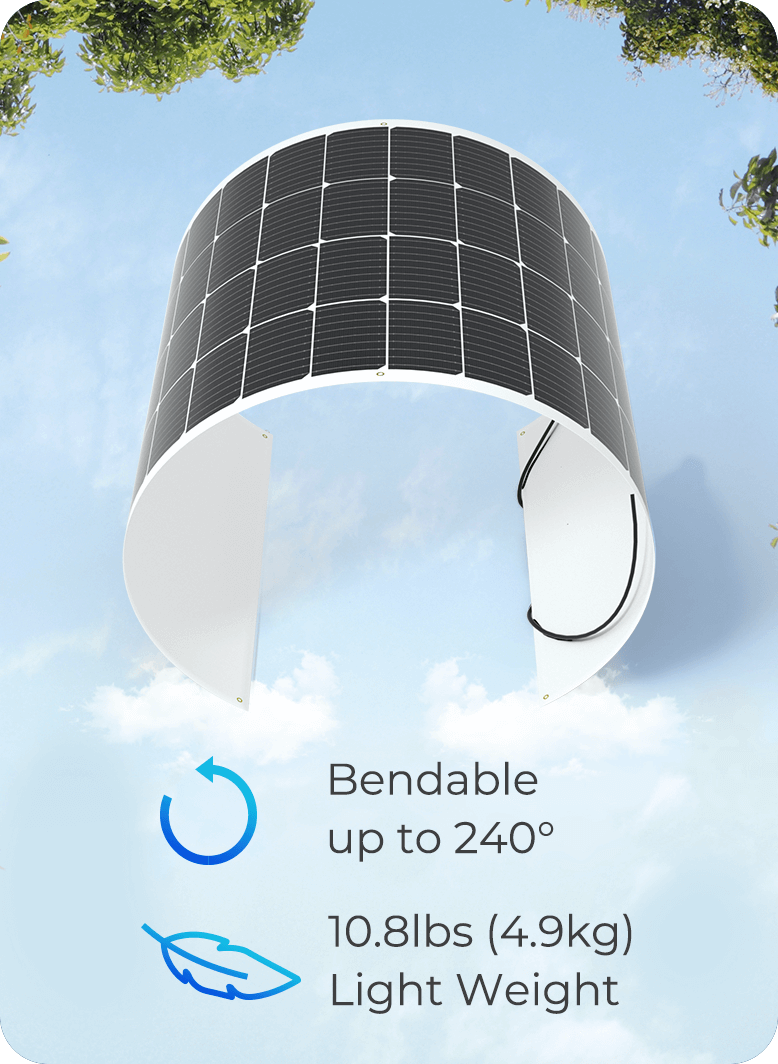

Designed to withstand harsh weather conditions
No matter the weather conditions, you can always set off with confidence with the Renogy 200W flexible solar panel by your side.
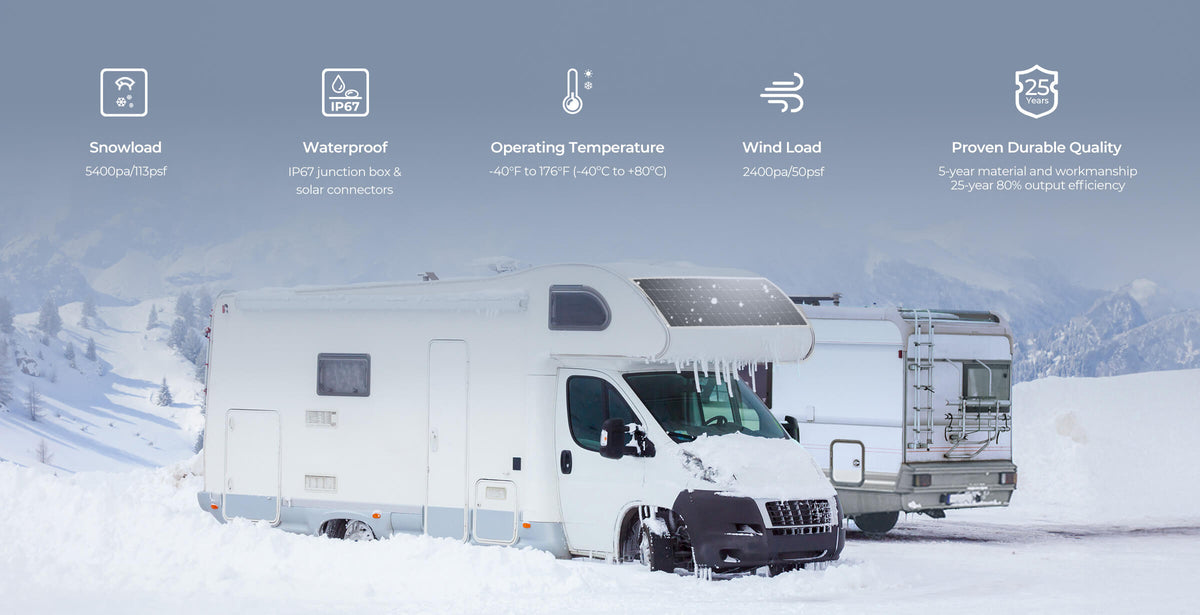
Package Contents
-
200 Watts – 12 Volts Monocrystalline Flexible Solar Panel
x 1
Composants intégrés
Caractéristiques techniques
Téléchargements
Frequently Asked Questions
1. What is the difference between flexible and rigid solar panels?
1. What is the difference between flexible and rigid solar panels?
Flexible and rigid solar panels have the same function: converting sunlight into electricity. However, they differ in their design. Flexible panels are thin, lightweight, and foldable, while rigid panels are framed with glass and usually a metal structure.
Flexible panels are particularly popular for their low weight, a major advantage for motorhome and campervan users, as they do not add weight to the vehicle. In addition, they easily adapt to curved surfaces, such as rounded roofs, making them more versatile than rigid panels.
2. Can I combine flexible and rigid solar panels?
2. Can I combine flexible and rigid solar panels?
Yes, it is possible as long as the technical specifications match. If you have panels of different types but with the same voltage, they can be connected in parallel even if their power (watts) differ.
3. What panel powers does Renogy offer?
3. What panel powers does Renogy offer?
Renogy offers flexible and lightweight solar panels in 50W, 100W, 175W and 200W, suitable for all your energy needs.
4. Can you walk on flexible solar panels?
4. Can you walk on flexible solar panels?
We do not recommend this. Walking on a solar panel puts a lot of pressure on a small area, which can cause cracks and damage the panel.
5. Why are my solar panels producing less than expected?
5. Why are my solar panels producing less than expected?
Several factors can decrease the performance of a solar panel, including environmental conditions such as indirect sunlight, increased temperature, cloudy skies, or the presence of dirt and stains on the panel's surface.
6. How do I connect my solar panels to my electrical installation (series vs. parallel)?
6. How do I connect my solar panels to my electrical installation (series vs. parallel)?
Solar panels can be connected in series or in parallel depending on your voltage and current needs:
In series: the voltage is added together, the current remains that of a single panel.
In parallel: the current is added, the voltage remains that of a panel.
To optimize power and compatibility with your installation, it is common to combine the two connection types.
7. How many solar panels do I need?
7. How many solar panels do I need?
To estimate the number of panels, start by determining your electricity consumption (expressed in watt-hours). Next, size your battery accordingly, then determine the total power required and the number of panels that can supply it. A safety factor of 1.5 to 2 is recommended to account for losses and variations.
8. Does this panel produce energy on cloudy days?
8. Does this panel produce energy on cloudy days?
Yes, thanks to high-quality materials, this Renogy panel produces electricity even on cloudy days. However, the production will be lower compared to a sunny day.
9. Do solar panels require maintenance? Can I clean them?
9. Do solar panels require maintenance? Can I clean them?
Yes, regular cleaning is recommended. Dust, dirt, or deposits on the surface can reduce the panel's effectiveness. To clean them, use a microfiber cloth, water, and a mild glass cleaner.



